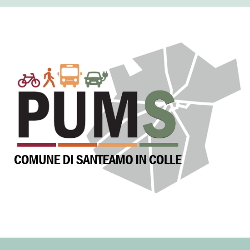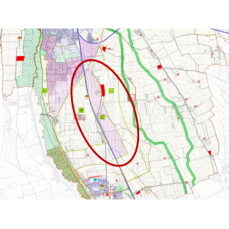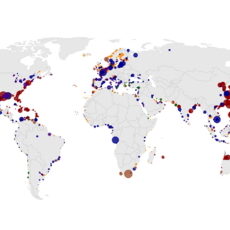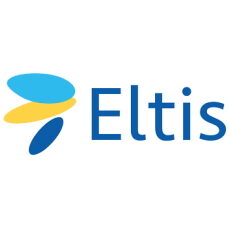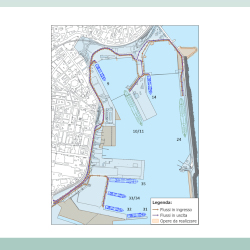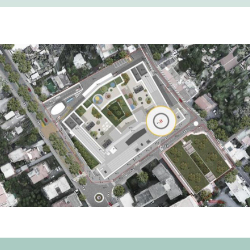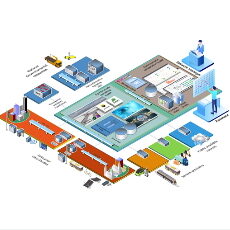- All
- African projects
- assessment
- assessment selected projects
- Assessment selected projects 2
- Assessment selected projects 3
- Assessment selected projects 4
- ASTRA
- Cost Benefit Analysis
- Electric mobility and ITS
- MOMOS
- planning
- planning selected projects
- planning selected projects 2
- planning selected projects 3
- planning selected projects 4
- planning selected projects 5
- projects
- Railways projects
- research
- research selected projects
- research selected projects 2
- research selected projects 3
- studies
- studies selected projects 1
- studies selected projects 2
- studies selected projects 3
- studies selected projects 4
- studies selected projects 5
- TRTingegneria
- TRUST
- urban mobility
- Drafting of the Sustainable Urban Mobility Plan (PUMS) for the Municipality of Santeramo in Colle (Metropolitan City of Bari) accompanied by Strategic Environmental Assessment The Municipality of Santeramo in Colle (BA) has commissioned TRT Trasporti e Territorio to develop its Sustainable Urban Mobility Plan (PUMS). This initiative is co-financed and supervised by the Puglia Region, reflecting the region’s commitment to equipping municipalities with strategic urban mobility and transportation planning tools. The SUMP serves as a strategic medium-to-long-term guide for the Administration’s mobility-related decisions. It integrates local, regional, and broader planning tools, ensuring cohesive and comprehensive urban mobility management. Santeramo in Colle, with a population of approximately 25,000, has a low population density of 178 inhabitants per square kilometer. The urban center houses 93.1% of the residents, leaving much of the surrounding area sparsely populated. The compact urban center, with its slight elevations, offers an opportunity to promote sustainable and healthy mobility behaviors, encouraging citizens to reduce car use. The PUMS development process aligns with European, national, and regional guidelines and is divided into three phases: Phase I – Knowledge Framework Phase II – Guidelines, with the objectives and strategies of the Plan Phase III – Plan Document, with the definition of SUMP alternative scenarios, the evaluation using the MOMOS strategic model, the cost estimation, and the monitoring plan. Participation is a fundamental aspect of the SUMP drafting process and will be present in all phases of the Plan’s development. With Municipal Council Resolution No. 16 of 20/05/2025, the Draft Plan related to Phase III of the SUMP was adopted. Following the 30-day public consultation period, the Plan was finally approved by the Council with Resolution n. 45 of 18/11/2025..
- Urban reorganization and landscape requalification sheet – Logistic hub in Isola della Scala The Municipality of Isola della Scala, affected by the provisions of the «Quadrante Europa Area Plan» (PAQE), which include – among others – the development of a logistics hub on its territory, has entrusted TRT Ingegneria with the service of drafting a Masterplan called «Urban reorganization and landscape requalification sheet». The focal point of the logistics hub is the provision for an intermodal centre, an infrastructure specialized in rail-to-rail and rail-to-road exchange functions located along the Verona-Bologna railway line (on the Brenner route and part of the TEN-T «Scandinavian-Mediterranean» corridor). Methodologically, the drafting process of the Masterplan is structured into the following macro-actions:
- Study on cross-border investment needs and climate adaptation of the TEN-T network The effective implementation of the TEN-T policy, with the completion of the core network and the extended network by 2030 and 2040, is key to creating a competitive industry, expanding the labour market, promoting growth and jobs and improve the daily lives of European citizens. It is therefore important to ensure sufficient investment for the completion of the TEN-T network. While it is important to complete the TEN-T, it is equally important to ensure that the infrastructure resists the threats of extreme events resulting from climate change, which will continue to increase in frequency, intensity, duration and spatial extent in the coming decades. The objectives of this study are: 1) identify the investments necessary to make the TEN-T resilient to climate change, 2) identify the investments necessary to remove the cross-border bottlenecks of the TEN-T and ensure its completion. In the study conducted together with M-FIVE (DE), VUB (BE) and ISL (DE), TRT is responsible for: Analyse and quantify the investments necessary for the completion of the TEN-T network until 2040, with particular focus on 43 cross-border projects and 33 national projects. Carry out an assessment of the economic and transport impacts resulting from the non-completion of cross-border projects with the support of two European-scale models TRUST and ASTRA. Analyse the role of CEF (Connecting Europe Facility) funds as a stimulus to the implementation of cross-border projects.
- CO-design of e-commerce last-mile DElivery and return options with ZERO emissions CodeZERO is a Horizon Europe research project coordinated by TRT whose objective is to investigate and develop innovative and sustainable zero-emission solutions for last-mile e-commerce deliveries and return options by integrating the perspectives of all various stakeholders. In addressing the question of more sustainable delivery solutions, CodeZERO will not only embrace the reduction of greenhouse gas and pollutants’ emissions from e-commerce deliveries but will also focus on other types of negative impacts such as those on safety, occupancy of public space as well as on delivery costs and working conditions of transport companies’ employees. Attention will be also given to understanding how alternative sustainable solutions might promote diversity, equality, and inclusion and integrate them within the EU transport sector. CodeZERO adopts an interdisciplinary approach combining both desk and field research as well as quantitative and qualitative analysis, following four phases: Analysis phase: understand current delivery options, stakeholder needs and constraints, and environmental impacts; Design phase: Develop consumer awareness campaigns, mechanisms to encourage sustainable choices, and a range of sustainable delivery/return options. Additionally, create a toolset for local authorities to accelerate adoption; Test phase: Pilot test the designed solutions and awareness guidelines in four European cities: Milan (IT), Utrecht (NL), Antwerp (BE), and Oslo (NO); Consolidation phase: Refine communication guidelines and delivery/return options based on pilot data. Develop an interactive tool for stakeholders to analyse the impact of adopting CodeZERO solutions
- Contribution to the EU Urban Mobility Observatory, ex-ELTIS, facilitating the exchange of information, knowledge and experience in the field of sustainable urban mobility The EU Urban Mobility Observatory, previously known as ELTIS, was created more than 25 years ago, and it is now Europe’s main source of information on urban mobility. The Observatory, financed by the European Commission’s Directorate General for Mobility and Transport, facilitates the exchange of information, knowledge and experience in the field of sustainable urban mobility. It addresses individuals working in transport as well as in related disciplines, including urban and regional development, health, energy and environmental sciences. TRT collaborates with the EU Urban Mobility Observatory since 2017. The current contract, covering years 2024 and 2025, foresees for TRT to carry on the following activities: collection of regular updates and lessons learned from existing EU- funded urban mobility projects covering several EU funding programmes and initiatives with the objective to pinpoint valuable contributions and enhanced insights to enrich the EU Urban Mobility Observatory. Special emphasis is placed on key topics of interest within the thematic domains of all six EGUM sub-groups. Update and further develop the portal, developing new contents such as news in the field of urban mobility and case studies across Europe Provide administrative support to the EGUM sub-groups, particularly on “Urban Vehicle Access Regulations (UVARs)” and “Active Mobility and safety of vulnerable road users” Support on the follow-up on the Commission Recommendation on national SUMP support programmes Support on updating the SUMP Guidelines and quality review of SUMP reference materials For more information: Previous contact ELTIS + SUMI – 2022 – 2023 Previous contract ELTIS – 2017 – 2021
- Eastern Sicilian Sea Port System Authority – Study of the compatibility of the project forecasts of the Catania Port Master Plan with the growth of the reference traffic The study, carried out on behalf of the Port System Authority of the Eastern Sicilian Sea, provides a verification of the compatibility of the traffic expected in the coming years for the port of Catania with respect to what is foreseen by the new Port Master Plan (PMP). The need for this evaluation arises by the revision of the PMP by the Port System Authority of the Eastern Sicilian Sea, which provides for a substantial reorganization of the areas dedicated to the various types of traffic. The work was carried out through an analysis of current and future demand for both passenger and freight traffic and through an analysis of current and future infrastructure supply, based on the forecasts of the new PMP. For the purpose of assessing traffic compatibility, demand and supply data were then cross-referenced in order to identify possible criticalities and necessary alternative solutions. The study focused on traffic flows concerning Ro-Ro (and Ro-Pax) and cruise traffic, as these categories are predominant over the rest of port traffic. The compatibility verifications carried out concerned: the current and future Ro-Ro vehicle storage capacity based on the growth forecasts of this traffic; the loading/unloading capacity of Ro-Ro rolling stock based on currently available equipment; the ability to manage within the port area tourist buses serving cruise traffic, both in the current and future conditions, and in particular peak conditions; the impact that increased port traffic will have on the local road system. In conclusion, the infrastructure adjustment forecasts of the new PMP are consistent with the expected growth in demand, both on freight and passenger side.
- New Hospital of “Penisola Sorrentina e della Costiera Amalfitana”, Municipality of Sant’Agnello (NA) – Transport Impact TRT Trasporti e Territorio was commissioned by Azienda Sanitaria Locale Napoli 3 Sud to carry out a Transport Impact Study related to the New Hospital of the Sorrento Peninsula and Amalfi Coast in the Municipality of Sant’Agnello. The aim of the project is to verify the impact generated on traffic in the study area, in order to highlight any critical issues on the future road network and identify possible solutions to mitigate them. The study also includes indications on parking. The traffic impact assessment analyzes the traffic flow conditions in two scenarios: the Existing Condition and, subsequently, the Project Scenario during the morning peak hour of a typical weekday. This assessment was conducted using a sophisticated dynamic micro-simulation tool for traffic flow, specifically implemented through PTV Vissim software. Through the modeling tool, the main transportation indicators necessary for evaluating the impact on flow quality compared to the current situation and identifying existing challenges were extracted and quantified. These indicators specifically include speed, delays, queue lengths, and Levels of Service. [tw_button icon=”” link=”http://www.trt.it/en/Projects/” size=”small” rounded=”false” style=”flat” hover=”default” color=”#223468″ target=”_self”]Projects[/tw_button]
- Flexibly adapted MetaInnovations, use cases, collaborative business and governance models to accelerate deployment of smart and shared Zero Emission mobility for passengers and freight MetaCCAZE is a “Research and Innovation Action” Horizon Europe project to support the implementation of the Climate-neutral and Smart Cities Mission. Its overreaching mission is to accelerate the user-centred deployment of smart systems and services that combine electric automated and connected mobility and related infrastructure across European cities. The project organizes a series of MetaDesign activities with multisector-stakeholders and population groups to develop co-designed and shared zero-emission mobility use cases, collaborative business and governance models. A toolkit called MetaInnovations will be developed consisting of six main smart technologies (1. grid supply-fleet-demand; 2. AI-Datawarehouse; 3. inductive automated charging; 4. remote control centre for Avs and ADAS for parking and docking; 5. AI-driven re-scheduling tools for e-services; 7. Digital twin optimisation). These technologies will be implemented to improve passenger and freight services (PT, on-demand minibuses, bike sharing and deliveries) and related infrastructures (mobility and logistics hubs, traffic management centres, charging infrastructure) in 4 trailblazer cities (Amsterdam, Munich, Limassol, Tampere). Successful cases will be transferred, implemented and demonstrated in 6 follower cities (Athens, Krakow, Gonzo, Milan, Miskolc, Paris region). TRT is leader of WP1 that sets the ground by reviewing the current situation in the cities and defining the several activities that will help structuring the implementation of the trailblazer and follower cities as well as their cross-fertilization. TRT will also design the standard impact evaluation framework that will be used by the cities to assess the efficiency and to ensure that their impacts aligns with the MISSION and SUMP/SULP targets. Finally, TRT will also prepare the “MetaPolicy Package” to contribute to updates of urban and transport policies and feed the strategic research and innovation agendas (SRIA) of CCAM, 2ZERO, CIVITAS and other initiatives.
- Mapping study on digital and technical solutions to enable more effective and user-friendly UVARs, while respecting the principle of subsidiarity The broad objective of the study is to support the operation of more efficient, user-friendly and non-discriminatory UVARs across the European Union for both vehicle users, operators and city authorities. For vehicle users (private and commercial) the specific objective is to improve the ease and efficiency of UVAR pre-registration procedures while, for authorities, to ease the conformity checks of vehicles. This study will seek to achieve the abovementioned objectives by identifying and mapping EU interoperable technical and digital solutions (or combinations thereof), as well as respective realistic and feasible implementation options, that facilitate seamless travel across the EU. This further “mapping study” builds on UVAR Exchange results and is structured in 4 Tasks. Task 1 starts with the identification, mapping, analysis and further clarification of interoperable digital and technical solutions or their combinations thereof, including an analysis of what it takes to implement them on the ground. Task 2 will provide an overview of the identified technology combinations with its specific pros and cons, constraints and challenges, including the notions of user-friendliness and non-discriminatory aspects. It will investigate and suggest EU-wide interoperability standards needed for UVAR compliance and enforcement technologies and digital solutions Task 3 will build from the previous and draft a roadmap of actions. Task 4 is a transversal task that will concentrate all stakeholder engagement and consultation activities TRT leads Task 3 activities and is responsible for investigating digital tachograph and camera-based solutions including data exchange and enforcement practices and IT systems in use in Italy. Besides TRT, the awarded consortium is composed of Panteia (NL), MAPtm (NL) and Austriatech (AT). The study follows the previous European Parliament Preparatory Action, contracted by DG MOVE, for an “User-friendly information tool on urban and regional vehicle access regulation schemes” that generated the projects UVAR Box and UVAR Exchange (https://uvarbox.eu/) with TRT as partner of the two consortia.

